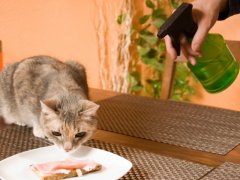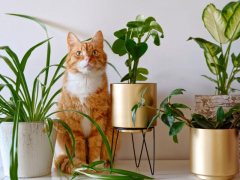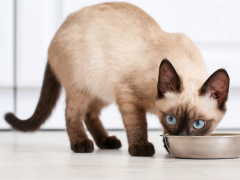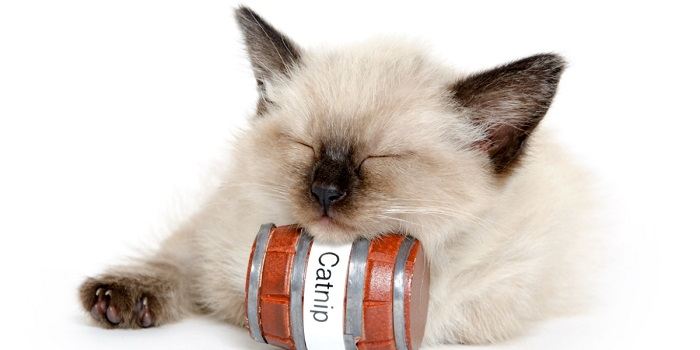
Cat owners have long been fascinated by the unique and euphoric behavioral responses to catnip. Offer a cat some catnip and you’ll quickly notice a change in their behavior. Catnap has been used for many years to enhance playtime, encourage mental stimulation, and even help cats relax.
We know catnip is widely available and safe for adult cats, but can kittens have catnip? If you’re a new kitten owner you’re probably looking for new ways to entertain your new feline family member and encourage them to burn off some energy.
Kittens need lots of stimulation from a variety of sources to encourage healthy development and keep them occupied, so let’s take a look at the safety of catnip for kittens and how you can use catnip to make playtime more interesting.
What Is Catnip?
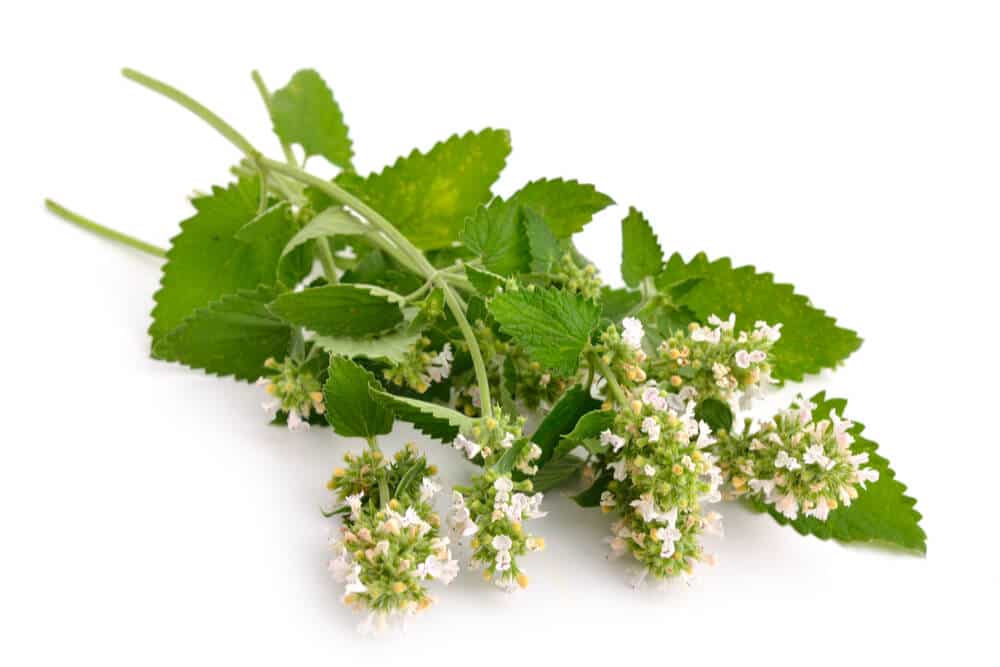
Cats react to a chemical substance in catnip called nepetalactone.
Catnip, or Nepeta cataria, is a member of the mint family. This herb originally grew in Europe and Asia but now grows all over the world. It can sometimes be seen growing in gardens and at the side of the road. It’s also sometimes known as catswort, catwort, or catmint.
Catnip secretes a chemical substance called nepetalactone. The smell of this secretion is what makes cats go crazy. Nepetalactone is found in the leaves, seeds, and stems of the catnip plant, and is released when these parts of the plants are crushed, chewed, or rubbed. That’s why you might notice your cat rolling in the plant—they are trying to release more of this oil to increase the delicious smell.
Also Read: What Does Catnip Do To Cats & Why Cats Like It?
What Does Catnip Do To Cats?
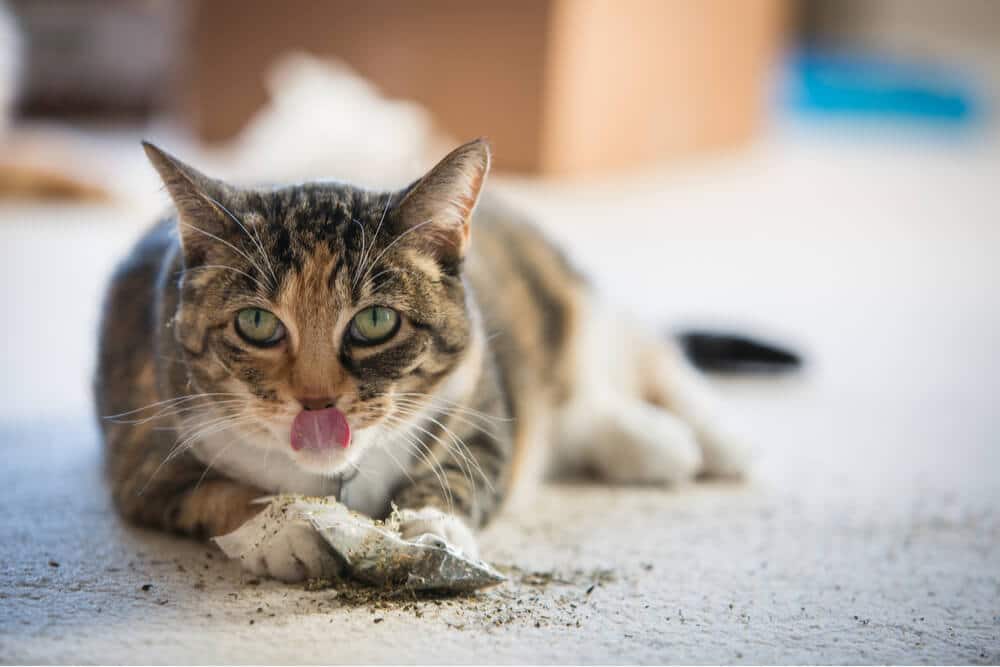
Catnip gives cats a feeling of excited euphoria, usually followed by calmness.
Once your cat sniffs nepetalactone, it enters the nose and binds to highly specialized smell receptors called olfactory cells, which send signals to the brain. The brain then triggers a release of endorphins, a response that thought to be similar to the way the brain responds to morphine.
Typically, a strange bout of hyperactivity and happiness rapidly follows, and you might notice your cat drooling, jumping, or stretching. Cats might also do some crazy running, skipping, and jumping around the room. The smell can also make your cat totally chill out and even show you more affection.
Occasionally, cats can become aggressive in response to catnip, which is an undesirable behavioral response. Cats that react this way should not use catnip. Every cat’s response to catnip is different. In fact, 20% to 30% of cats don’t react to catnip all. It’s thought that a cat’s response to catnip is genetic.
The effects of cattnip are usually short-lived and wear off after about 30 minutes when the cat loses their sensitivity to nepetalactone. It’s quite common for cats to be quiet and relaxed whilst the effects of the euphoria wear off. It’s important to note that the effects of catnip are non-addictive and cats do not become dependent on it in any way.
We don’t fully understand why cats love catnip so much, but some research suggests that the brain interprets the smell as a pheromone. The behavioral responses to catnip are associated with species-specific behaviors, including feeding, playing, and predatory behaviors. The scientists also noted that these reactions are random and intermittent.
Also Read: Can Cats Eat Catnip?
When Can You Give a Kitten Catnip?
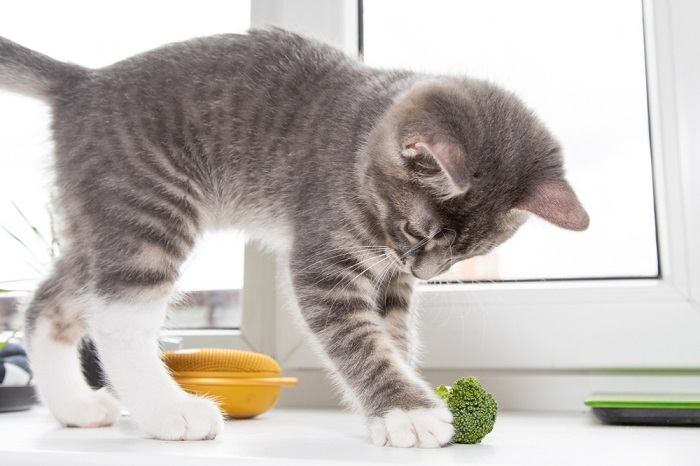
Most kittens younger than 3 to 6 months don’t react to catnip at all.
Kittens need lots of stimulation to keep them busy and to encourage healthy development. Catnip can be particularly interesting for your kitten. But we know that kittens don’t develop a sensitivity to nepetalactone until they are a bit older.
At What Age Can a Kitten Have Catnip?
Before 3 to 6 months old, kittens might completely ignore catnip or produce only a very weak reaction to it. Once they do develop that sensitivity, kittens go crazy for catnip!
We’re all familiar with the zoomies, and catnip can often trigger these mad episodes of running around. Playtime is essential to avoid boredom and problem behaviors, and a bit of catnip can make playtime just that bit more exciting.
If your kitten responds with the zoomies, it can also be a great way of giving them some exercise, especially before they are allowed outdoors, or for cats that live indoors only.
If your kitten responds well to catnip, you can also use it as a reward or treat when training to encourage good behavior or to encourage them to use certain beds or toys. For cats that become calm and relaxed in response to catnip, it can also be a great way of encouraging rest and nap time or reducing stress and anxiety.
Also Read: The 5 Best Catnip Products For Cats (Spray & Toys and More Surprises)
How Much Catnip Is Safe For Kittens?
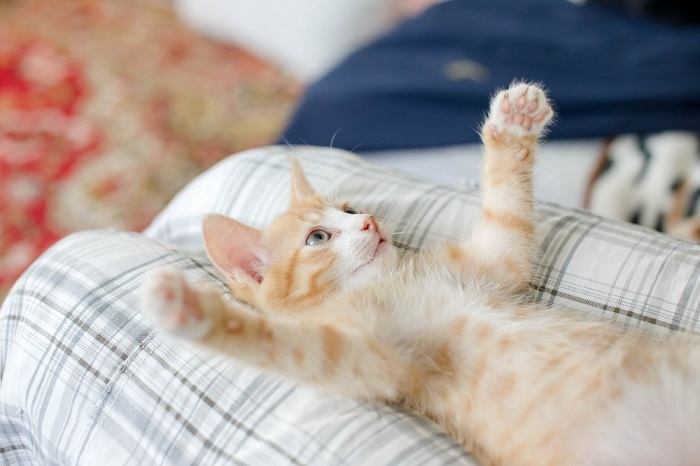
Kittens can’t overdo it by sniffing catnip, but eating too much catnip can cause an upset stomach.
The good news is that catnip is extremely safe and nontoxic, so your kitten can’t overdose on catnip. However, it’s important to remember that kittens have more sensitive tummies than older cats, so too much catnip could cause some mild vomiting or diarrhea.
Also, adult cats have the ability to self-moderate, whereas young kittens have less self-control so might not know when they’ve had too much. Too much catnip can be overstimulating and lead to problematic behaviors. Always supervise your kitten when they are playing with catnip.
Fresh catnip leaves have a higher potency than dried ones, so your cat will need less of it to react. If you grow your own catnip, make sure you keep the plant well out of your kitten’s reach so you can offer it in moderation.
Start by giving your kitten a very small amount—half a teaspoon a day is probably about right. If you’re using catnip from the store, always read the label and follow the manufacturer’s instructions on how much to use.
Once you know how your kitten responds to catnip, you can decide whether to give them more or less. If your kitten shows aggression, avoid giving them catnip altogether.
Catnip is safe for cats and kittens, but there are some circumstances where you should avoid it. Cats that have been diagnosed with epilepsy or any neurological condition should not be allowed access to catnip as it could trigger a seizure. It’s also thought that catnip should not be given to pregnant queens as it could stimulate uterine contractions.
Also Read: Does Catnip Make Cats High?
How Can I Give Catnip To My Kitten?
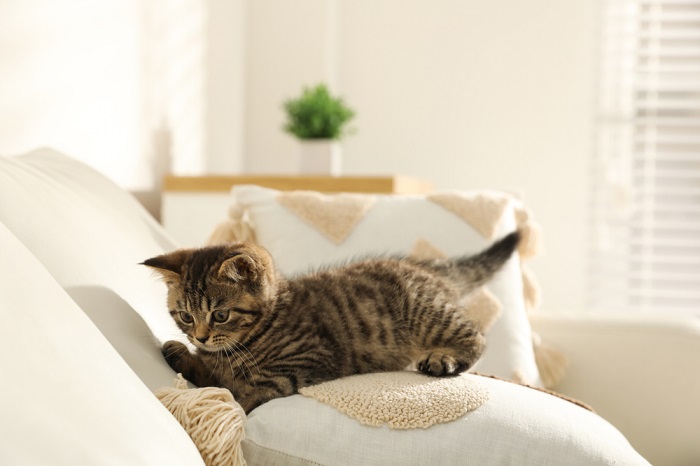
You can sprinkle dried catnip on your cat’s bed or scratcher, or offer catnip infused toys.
You’ll find a whole range of catnip products in pet stores, and the catnip herb can even be grown in your own home! So that means there are loads of interesting ways to offer catnip to your pet.
- Fresh catnip leaves
- Dried catnip (sprinkle in small amounts on bedding and toys)
- Catnip toys (mice, balls, and scratching posts)
- Catnip spray (this is very concentrated so always follow the instructions)
- Catnip treats
Catnip For Kittens: Final Thoughts
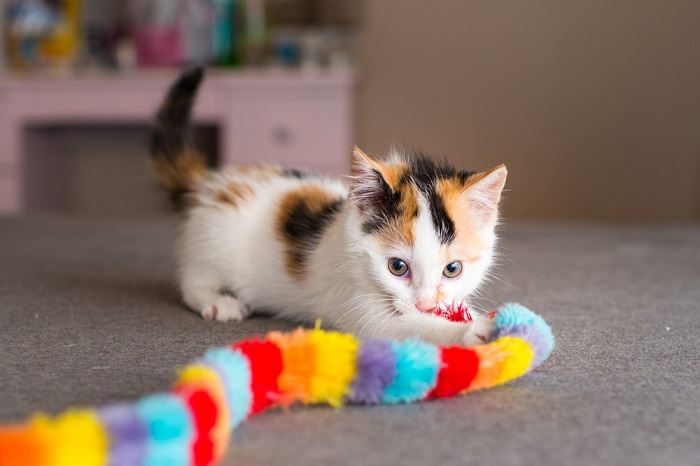
Once a kitten’s sensitivity to catnip is developed, offer it in moderation to liven up play time.
Catnip is a safe and nontoxic plant that can be used in toys to enhance playtime, as well as a treat or reward. Some cat owners also use catnip to reduce stress and anxiety and create a calming environment.
But every cat responds differently to catnip, with some cats producing no reaction at all. Kittens don’t have any sensitivity to catnip until they are 3 to 6 months old, but once they develop this sensitivity it can be a great safe way to make playtime more interesting.
Catnip is available in a variety of forms, but always supervise your kitten and assess their response before giving them more or using it too frequently.
Also Read: The 7 Best Calming Cat Treats


